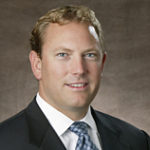Bob is a master at recognizing people’s limitations at communication, and at recognizing that communication is essential to every aspect of a job.
Bill Lee
When did you meet Bob?
I met Bob about five years ago. I met him on a plane to San Francisco. Bob’s a very personable character. We struck up a conversation immediately and Bob impressed me with his views, his thoughts, his enthusiasm, and then it turned out we knew someone in common.
Bob is good at teaching people how to listen as well as how to speak so that other people will listen.
When did you start working together?
Approximately nine months after our first meeting I followed up with Bob, and I brought him into Gilead and had him give coaching sessions to a number of my senior leaders.
How has he helped you build a winning team?
One of the biggest values from Bob that my team has received is communication. Bob is a master at recognizing people’s limitations at communication, and at recognizing that communication is essential to every aspect of a job. Bob is good at teaching people how to listen as well as how to speak so that other people will listen. That’s made a huge difference in the way we interact. Bob is all about the team, and the emphasis on empathy and understanding for people on your team. Combined with communication that’s a very powerful message, and it made a difference to our team.
Bob is all about the team, and the emphasis on empathy and understanding for people on your team. Combined with communication that’s a very powerful message, and it definitely made a difference to our team.
What are the most valuable aspects of his coaching?
In a pragmatic sense, the way he comes in, does one-on-one coaching, the actual filming of people and letting them see how they actually communicate makes a tremendous difference. It’s a little bit embarrassing at first, but it has enormous value. Bob also has a very strong sense of ethical guidelines for every leader. He stresses leadership, and leading from the front.
The actual filming of people and letting them see how they actually communicate makes a
tremendous difference. It has enormous value.
How has Bob's key coaching concept—to be yourself—helped you the most, both professionally and personally?
I think that so many of us in communicating were nervous about being ourselves. I’d been taught to speak a certain way, to adopt a certain tone, to answer questions a certain way, and Bob has thrown that out and said, “no, no, if you want to be credible, if you want to be heard, understood, listened to—you’ve got to be yourself. It’s the only thing that matters.” It’s a real sincerity. It’s the key to communication. It’s not just what you say but how you say it in terms of who you are, so it’s more meaningful.
Bob also has a very strong sense of ethical
guidelines for every leader. He stresses leadership, and leading from the front.
Do you find that Silence is indeed a key skill for being an effective communicator? WHY?
I use silence much more in my communication now than I ever did before. And I realize how powerful it is, twofold: one, it gives people time when you pause to process what you’ve said, and two, it also leads to anticipation of what you’re going to say, so it really heightens the receiver’s ability to understand and to take your message. And clearly, when people don’t pause, it’s like a run-on sentence and it drives you—now that I’m hyper-sensitive to it—it drives you mad. You quit listening. And that’s the worst thing as a communicator is to have your audience quit listening.
I’d been taught to speak a certain way, to adopt a certain tone, to answer questions a certain way. Bob has said, “no, no, if you want to be credible, if you want to be heard, understood, listened to—you’ve got to be yourself. It’s the only thing that matters.” It’s the key to communication. It’s not just what you say but how you say it in terms of who you are, so it’s more meaningful.
From your perspective and viewpoint why is Bob's coaching approach effective in helping individuals build and develop their "Own Best Games?"
I think it starts with some very practical information on communication. Your “best game” can only happen if you communicate. And the more effectively you communicate, the more people want to listen to you, the better your game is going to be, the better leader you’re going to be, the better scientist you’re going to be. Its ids so fundamentally important. And his advice is practical. He shows you what you’re doing, and he tells you what you need to correct. And you couple that point with his descriptions of leadership and his ethical principles, it’s a powerful message.
I use silence much more in my communication now than I ever did before. I realize how powerful it is. It really heightens the receiver’s ability to understand and to take your message.
Does Bob's key theme, "You are always at your 'Best' when you are Being Yourself " help you achieve your leadership goals?
There’s a lot that goes into achieving all your leadership goals. It isn’t an excuse for good content, but it certainly makes me more effective. Also, importantly, it takes away how I want to be from being something other than myself, which is in itself a hard thing to do. As long as I use some of these techniques—silence, directness, being myself—I can expect to succeed.
Your “best game” can only happen if you
communicate. And the more effectively you
communicate, the more people want to listen to you, the better your game is going to be, the better leader you’re going to be. It’s so fundamentally important.
Based on your own experience, why does Bob's coaching and mentorship work for you?
Because I was doing so many things wrong!
Bob’s advice is practical. He shows you what you’re doing, and he tells you what you need to correct. Couple that point with his descriptions of leadership and his ethical principles, and you have a powerful message.






